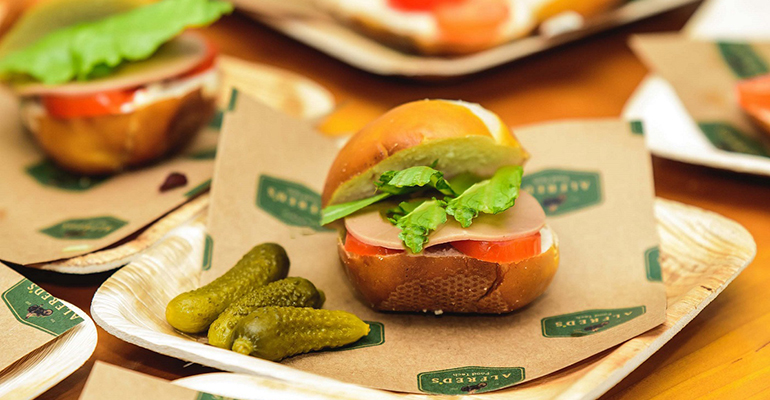Alfred’s FoodTech develops a platform for plant-based whole cuts
23 Sep 2021Israel—Start-up Alfred’s FoodTech has introduced an innovative platform for producing plant-based whole cuts that mimic animal-derived products.
The company developed a versatile platform for whole-cut texturization to produce plant-based meat alternatives that can answer the growing need for flavorful, sustainable, animal-free products.

Alfred’s joined the foodTech scene to solve one of the alt-protein movement’s key challenges: creating whole cuts that mimic their animal-based counterparts in terms of texture, mouthfeel, and flavor tones. The technology focused company has successfully produced prototypes of deli meat, high-in-demand chicken nugget analogs.
Most meat alternative products contain a long list of ingredients and additives to achieve the same texture and aroma as meat and poultry. The main challenge is to minimalize ingredients and maintain high protein, while creating continuous, whole-muscle tissue cuts in a sustainable and cost-effective manner.
Various food technologies already serve the rapidly growing alternative protein scene. Extrusion or the more recent 3D printing are used to bind ingredients into desired fibrous forms. Novel fermentation and scaffold technologies also are gaining ground. Alfred’s technology is able to build continuous tissue like structures and can work with other existing technologies.
“Plant-based whole-cut products that resemble meat are the ‘Holy Grail’ of the industry,” enthuses Ronny Reinberg, CEO and co-founder of Alfred’s. “Our tech uses only simple ingredients, such as pea protein and canola oil. Yet we can still custom-design compositions for food companies using protein sources of their choice, including cell-based ingredients. “With Alfred’s versatile technology, any food company can easily create alternative products that give consumers the exact experience of real meat and poultry.”
Alfred’s technology can scale up outputs quickly, making it suitable for mass market-oriented food corporations, and can be integrated into existing food processing systems. The start-up plans to establish a low-volume production site to serve initial market demand.